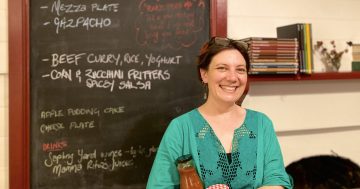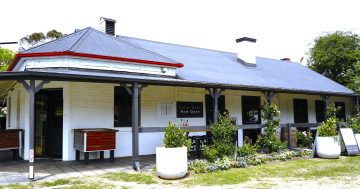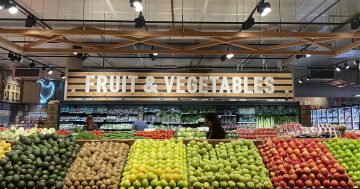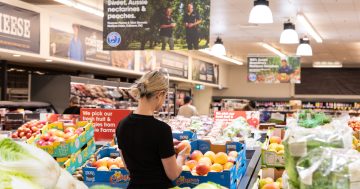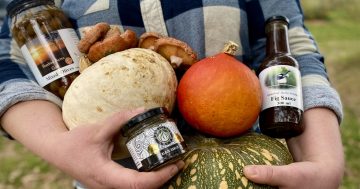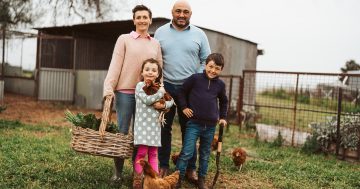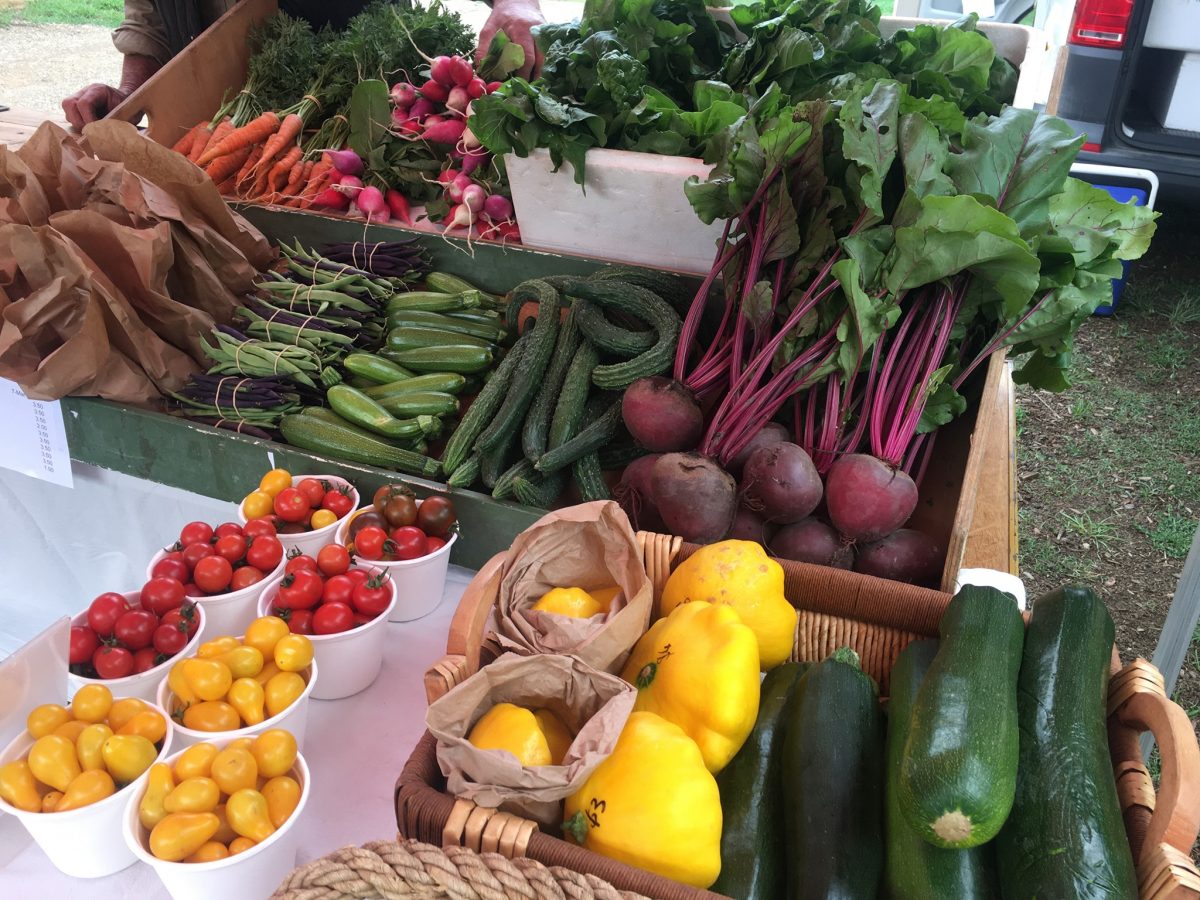
Southern Harvest Association works with several local farms to fill its produce boxes with seasonal fare. Photos: Supplied.
Many people in Canberra are still buying their fresh fruit and vegetables from the big supermarkets, but a local organisation is looking to change that with its produce box subscription scheme.
Ruth Gaha-Morris is the operations manager for Southern Harvest Association, a not-for-profit, farmer-led organisation that works to connect local producers and growers with customers.
Ruth said she considered Southern Harvest as a conduit rather than a middleman.
“Once you bring profit into food distribution, something else has to suffer, whether it be the livelihood of the farmers, or the health of the soil, or people not having equitable access to food because you’ve put someone else in the middle who is making a profit,” she told Region.
“Southern Harvest is trying to make the relationship between farmers and consumers as direct as possible.”
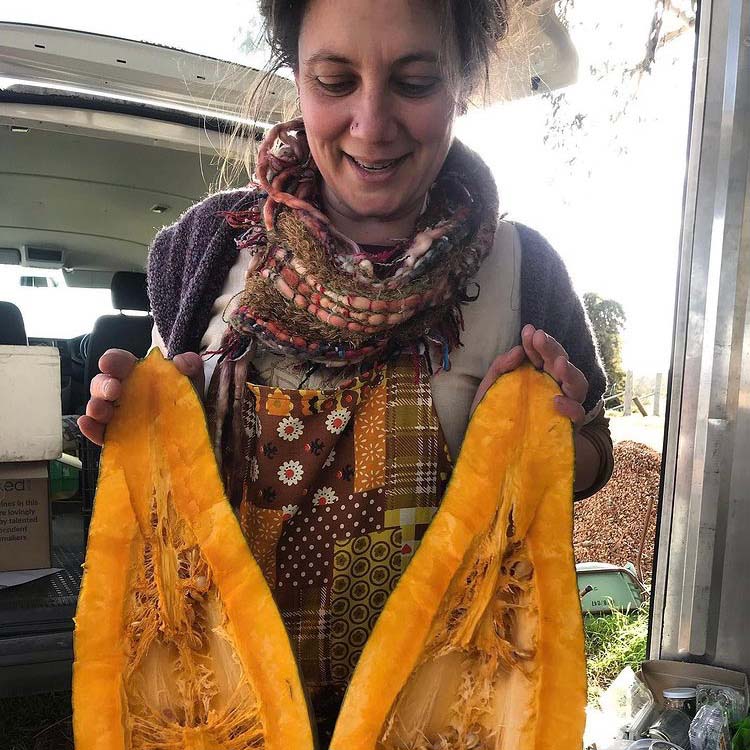
Ruth Gaha-Morris is the operations manager of not-for-profit organisation Southern Harvest Association.
One of the ways Southern Harvest does this is by running a multi-farm produce box subscription scheme. Households sign up for a full season of weekly or fortnightly seasonal produce boxes. The contents of the boxes are sourced from producers in and around Canberra, and are aggregated from multiple farms by the team at Southern Harvest before being distributed to neighbourhood hubs by volunteers.
Southern Harvest has been running the scheme for several years and has about 150 subscribers.
The produce box scheme is based on the consumer-supported agriculture (CSA) model, whereby customers and farmers commit to sharing the risks and rewards of the season in an economy of solidarity. By adding a multi-farm element, Southern Harvest can offer a greater range of produce to customers while easing the workload for farmers.
“The farmers are getting a collective power. For one farmer to run a produce box scheme, it’s a huge amount of administration and they’d need to grow a lot of different things,” Ruth said.
“But for an organisation to help 15 farmers to run a scheme together ends up being a similar amount in administration but they are all sharing the costs with members and Southern Harvest is doing the work.”

A summer season produce box packed for a subscriber.
Customers can choose the size of their produce box, including the option to add more fruit. For example, subscribers who also have vegetable gardens often supply a list of food they already grow, or people can nominate their likes, dislikes, and dietary requirements.
Southern Harvest then allocates the contents of the box according to what the farmers have available, ensuring there is always a good mix of ingredients to make a range of meals and offer a balanced diet.
Ruth said subscribers often told her that they became better, more creative cooks as they learned to use new ingredients and changed the way they ate.
“We have a really diverse bioregion in South-East NSW where you can grow food 12 months of the year; it just might not be what people are used to,” she said.
“People are disconnected from what grows locally and what seasonal eating looks like. So that’s something we’re trying to change.”

Southern Harvest Association also runs the popular Bungendore Harvest Festival each year.
Subscribers can also add additional grocery items to their boxes, such as dairy products, bread, meat, eggs, muesli, soap, jam, olive oil and wine … there’s a long list of local producers in the region who are members.
Southern Harvest uses the Open Food Network platform as an online shop for members, which gives more producers direct access to customers without needing to set up their own online platform or spend time and energy travelling to and staffing a farmers’ market stall every weekend.
Ruth said the environmental and health benefits were obvious: local, seasonally grown produce was more sustainable for the planet and more nutritious. But other benefits included community building and developing local relationships.
“People are engaged in this community,” she said. ”We have people going on farm tours to learn about where their food comes from, farmers collaborating to share transport and skills, or members sharing new recipes.
“It’s a community experience that you just don’t get from a supermarket.”
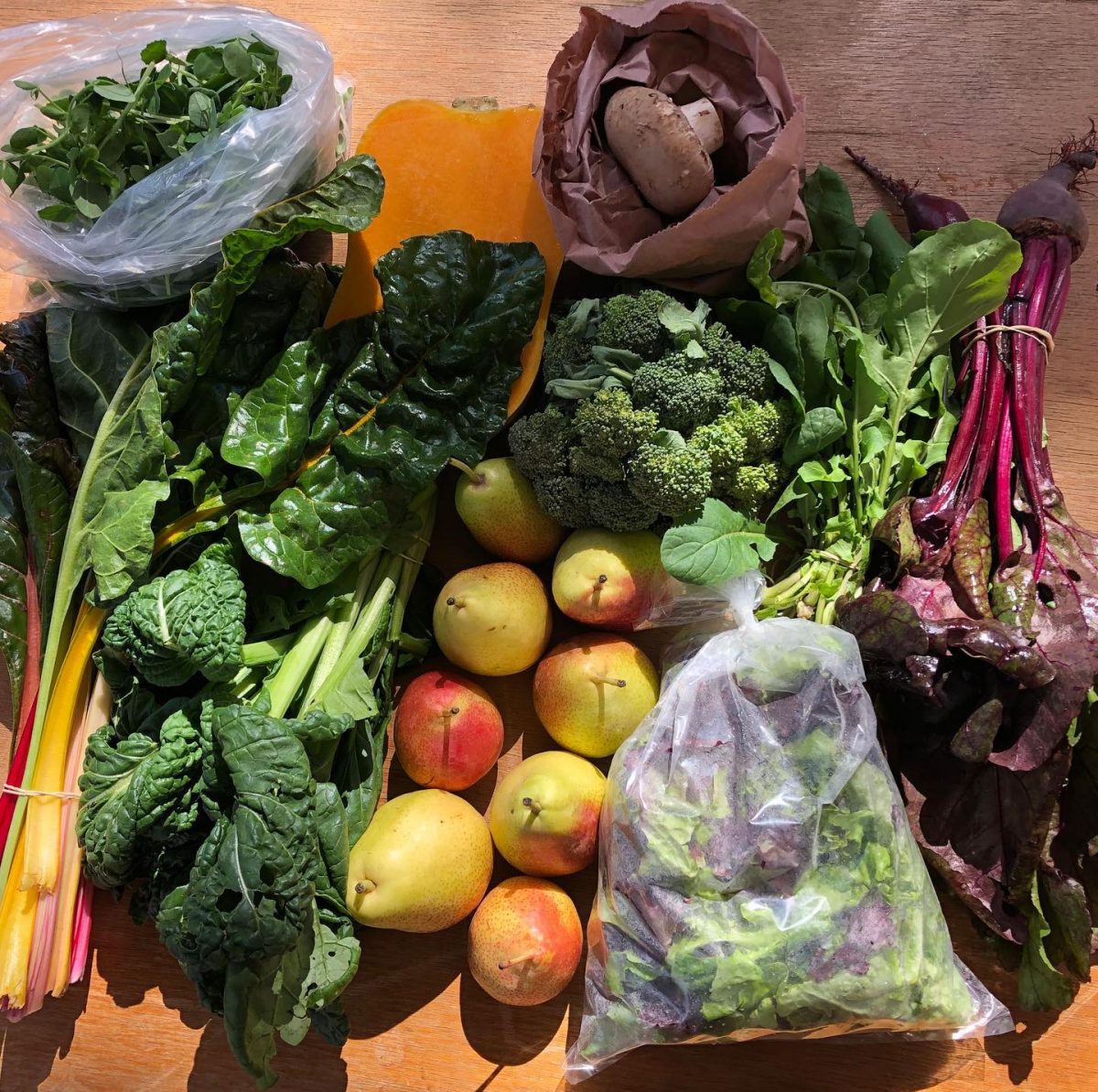
Subscribers to the produce box scheme receive a range of seasonal ingredients.
Visit the Southern Harvest website for more details about produce boxes, or follow the group on Facebook or Instagram to learn more.
DISCLAIMER: Lucy Ridge is also a part-time employee of Southern Harvest Association.












